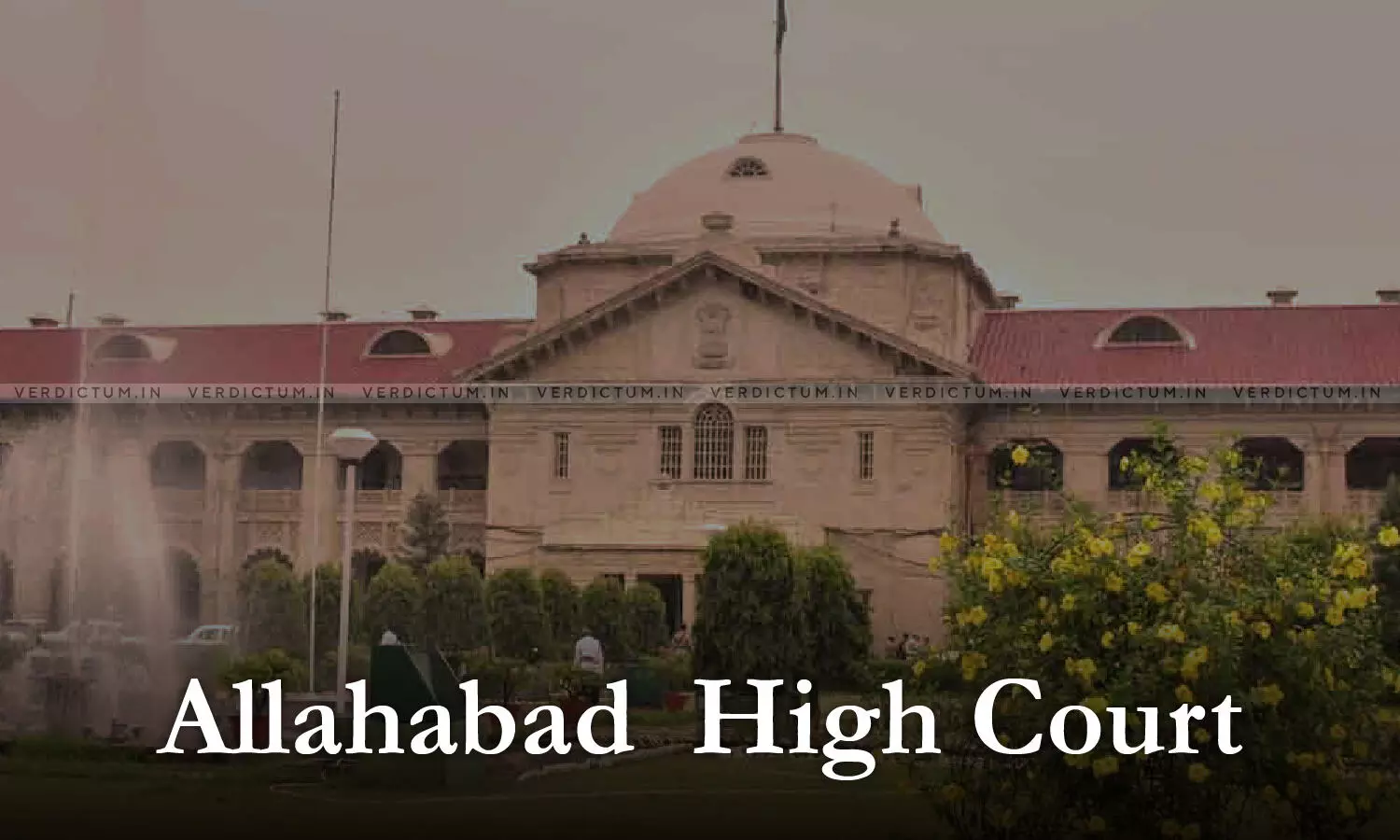
“Misconceived, Frivolous, Irresponsible & Merit-Less”: Allahabad HC Rejects Lawyer's Plea Seeking Criminal Contempt Proceedings Against Justice Sunita Agrawal
 |
|The Allahabad High Court has rejected a criminal contempt application filed by an Advocate against Justice Sunita Agrawal (now Chief Justice of Gujarat High Court) as being wholly misconceived, frivolous, irresponsible and merit-less.
The Division Bench of Justice Rajiv Gupta and Justice Surendra Singh-I held, “We therefore have no hesitation to hold that the present criminal contempt application is not only frivolous but is also vexatious. In the interest of proper functioning of this Institution, such applications should be discouraged by all means. More so, when the litigant happens to be an Advocate from whom the Court is entitled to except certain degree of responsibility and restraint as an Officer of the Court. The present Criminal Contempt Application, being wholly misconceived, frivolous, irresponsible and merit-less, is liable to be rejected outrightly and is accordingly rejected.”
Applicant Arun Mishra appeared in person.
A contempt application was filed under Section 15(1)(b) of the Contempt of Courts Act, 1971 (‘Act’) by an Advocate with a prayer to initiate criminal contempt proceedings against Justice Sunita Agrawal, who is currently the Chief Justice of the Gujarat High Court.
The Applicant submitted that he had filed a writ petition, which was heard by the bench of Justice Sunita Agarwal and Justice Jayant Banerji. After the hearing, the said Bench dismissed the writ petition as being misconceived and imposed a cost of Rs. 15,000/- which was to be deposited by the Petitioner within two weeks.
He further submitted that being dissatisfied with the order, he had made a complaint to the In-House Committee of the Supreme Court of India, highlighting the impropriety of the order passed by the Division Bench. He added that a complaint in this regard was also made to the President of India.
The applicant stated that pursuant to the aforesaid exercise undertaken by him, the Division Bench presided over by the opposite party stopped hearing the petitions preferred by him and started releasing the matter to be heard by some other Bench nominated by the Chief Justice.
In another writ petition where he was the counsel, the bench of Justice Sunita Agarwal and Justice Deepak Verma dismissed the petition for want of prosecution. Similarly, the Applicant submitted various other orders.
The Court said, “Upon hearing the applicant and perusal of the record placed by him, we find that the aforesaid orders referred to by the applicant has been passed by the Division Bench presided over by the opposite party in exercise of its judicial discretion and based on the facts and circumstances of each case, which does not in any way tantamount to contempt of her own Court, for which, the applicant proposes to initiate the criminal contempt proceedings that too only against the opposite party.”
The Court said that the instant criminal contempt application was neither filed by the Advocate General nor with his consent in writing, rather, he had already rejected the Applicant’s application before.
“As a matter of fact, the whole object of prescribing procedural mode of taking cognizance under Section 15 of the Act is to safeguard the valuable time of the Court from being wasted by the frivolous contempt petitions filed under the Act.”
It also referred to Section 15(1) of the Act, which requires that the motion should be made by the Advocate General or a person with the consent in writing of the Advocate General. It is for the mere purpose of ensuring that the High Court is not flooded with frivolous motions but receives only motions of substance, the Advocate General has been entrusted with that function by virtue of his legal training, experience and the responsibility presumed in the holder of that Office.
The Court relied on the landmark judgment of the Supreme Court in Chairman, West Bengal, Administrative Tribunal and Another v. Sk. Monobbor Hossain and Anr, (2012), which held that contempt jurisdiction enjoyed by the Courts is only to uphold the majesty of the judicial system that exists and while exercising this power, the Courts must not be hyper-sensitive or swung by the emotions, but must act judiciously.
“In the backdrop of the aforesaid facts and circumstances discussed above and in view of the settled principles of law, we are of the considered opinion that by no stretch of imagination, it can not be said that the act and conduct of the opposite party in passing the orders referred to herein-above, falls within the domain of “Criminal Contempt” as defined in the Act…”, the Court concluded.
Accordingly, the Court outrightly rejected the contempt application.
Cause Title: Arun Mishra v. Honble Mrs Justice Sunita Agrawal, The Then Puine Judge Of This High Court Of Judicature At Allahabad (Neutral Citation:2024:AHC:153945-DB)
Appearances:
Applicant: In Person